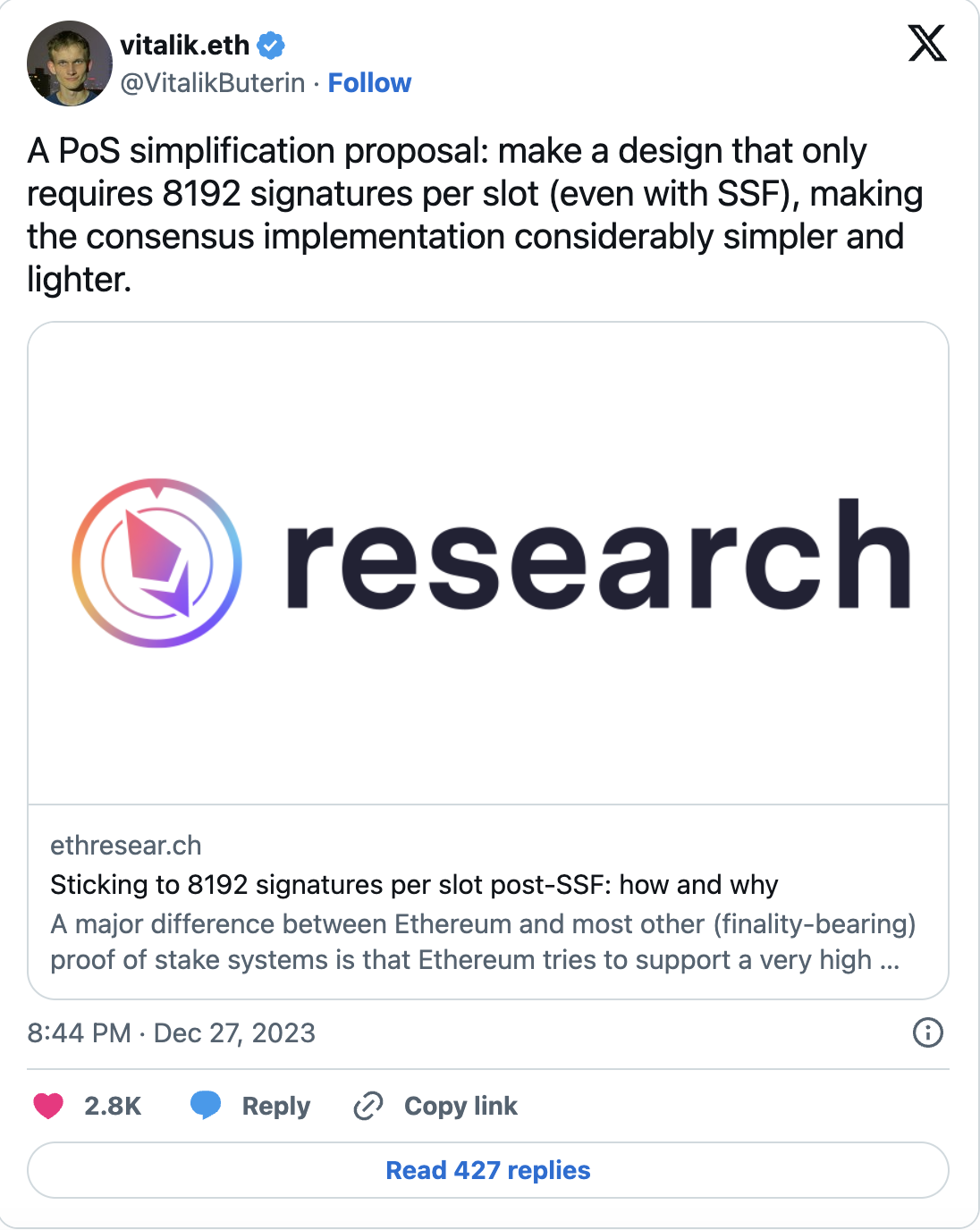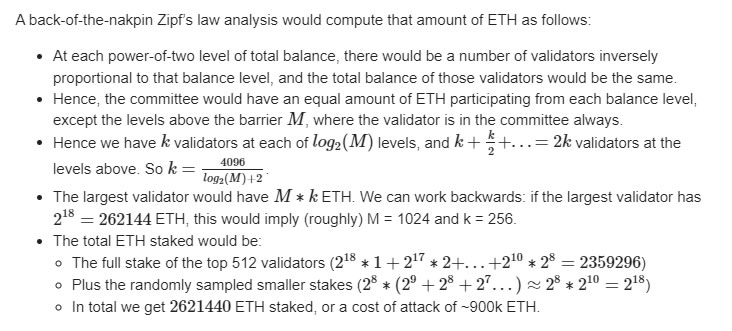Ethereum co-founder Vitalik Buterin has proposed a way to reduce the load on the Ethereum blockchain network and make the proof-of-stake (PoS) solution significantly simpler and lighter. Accordingly, the famous figure managed to attract the attention of the Ethereum community, especially with a proposal to reduce the load by decreasing the number of signatures that validators need to cast for the network to continue operating, which he suggested on December 28th.
Vitalik Buterin’s Noteworthy Solution Proposal
Ethereum is currently supporting a high number of validators, around 895,000, to achieve decentralization within the ecosystem and allow users to participate in staking processes. However, supporting so many validators in the process requires the network to process a large number of signatures, approximately 28,000 per block, which brings significant technical disadvantages.
Moreover, supporting this load requires various solution processes, such as limiting network resilience, complex fork operations, and scaling signatures through zero-knowledge proofs (SNARKs). In addition, the minimum requirement of 32 Ethereum to become a validator is still too high for many people, thus not fully achieving the goal of user participation.

What to Expect in the Ethereum Network?
Vitalik Buterin has proposed a moderate solution to switch from the current limit of 28,000 signatures to about 8,192 signatures per validator, instead of trying to maintain an ever-increasing number of signatures per validator. This step would allow for significant technical simplification and make the ecosystem more resilient. Buterin suggests three potential approaches: relying on fully decentralized staking pools, a two-tier system with heavy and light stakes, and rotating participation with accountable committees.

The most significant advantage of this development is that it will make protocol and infrastructure development much easier in the future by keeping the signature load at a manageable level. Vitalik Buterin commented on this issue:
“The future load of the Ethereum protocol is no longer an unknown. In the future, this load can be increased through hard forks, but this will only be possible when developers are confident that the technology has advanced enough to manage a larger number of signatures per validator with the same ease.”
In May, Vitalik Buterin had warned about the dangers of stretching the basic functions of validating blocks and securing the network beyond their primary purposes in the Ethereum network.

 Türkçe
Türkçe Español
Español








